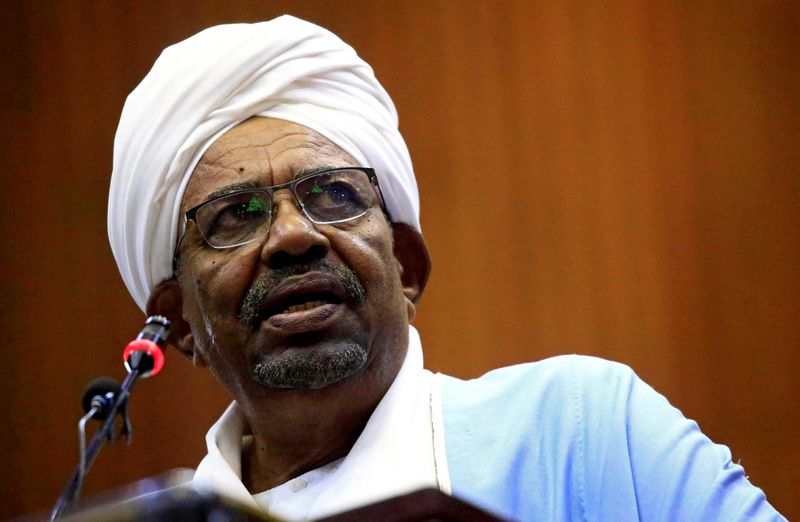By Aidan Lewis and Khalid Abdelaziz
KHARTOUM (Reuters) - Sudan has made a surprise opening to Israel, announced compensation over the bombing of a U.S. warship 20 years ago, and said it will fully cooperate with the International Criminal Court on cases about Darfur.
All are measures that could help rebuild ties with the West after decades of international isolation and help unlock urgently needed financial support for a reeling economy.
But the steps -- all in the past month -- may not be enough.
International donors are holding back, demanding more transparency on public and military spending, an economic reform plan, and the lifting of fuel subsidies estimated to cost about $3.5 billion a year.
The risk, say some Sudanese, is that the economy could collapse without sufficient support, in turn fuelling political strife that could endanger prospects for a new era of democracy.
It is unclear when substantial support could materialize.
Potential donors from the West and the Gulf have met several times, but they have postponed from April to June a "Friends of Sudan" economic conference where pledges could be made.
The United States has signaled that Sudan could be removed from a list of countries seen as state sponsors of terrorism, but has given no timeframe.
Being on the list complicates efforts to negotiate a deal for Sudan's foreign debt, unblock funding from international lenders and connect Sudan to international banking systems.
ECONOMIC CRISIS
A government of technocrats, appointed under a power-sharing deal between civilians and the military due to last until late 2022, is lurching through an economic crisis that has only deepened since the overthrow of long-time ruler Omar al-Bashir last April.
"We have economic ideas about how to overcome this. But all these theories depend on some type of help or assistance from the outside world," Information Minister Faisal Salih told Reuters. "We need real, massive assistance."
The finance minister said in November that the government needed up to $5 billion to avert economic collapse. Since then, officials have been struggling to contain worsening fuel and bread shortages linked to a scarcity of dollars and smuggling of subsidized goods, despite some aid from the Gulf.
Inflation running at more than 60% -- one of the highest rates in the world -- has crippled spending power, more than nine million out of a rapidly growing population of 43 million need humanitarian relief and child malnutrition is rising.
Ministers say they have made progress in a peace process aimed at healing long-running internal conflicts, but that economic challenges are bigger than expected, imperiling a transition designed to usher in a new era of democracy.
Though the government still enjoys support on the street, diplomats and analysts say it is overwhelmed and worry that the public could lose patience.
"I don't think there is a strategic awareness that this moment in history is very decisive for Sudan," said Suliman Baldo, a senior policy advisor at the Enough Project, a Washington-based research and advocacy group.
"You either have a transition to civilian rule and democracy, or you will be heading down toward a situation of a failed economy and a failed state."
The government faces internal opposition over economic reforms. Ministers have retreated from any major steps on subsidies until after an economic conference in late March with the Forces for Freedom and Change (FFC), a fractured grouping of political movements that backed the uprising and negotiated the power-sharing deal.
CORRUPTION
That is a problem for donors. "If they don't do something about the fuel subsidies, they're not going to get any money, simple as that," said one Western diplomat. An announcement of a two-tier pricing system at some fuel stations from mid-February was insufficient, he added.
Influential left-wing currents with the FCC say outside aid is not needed, preferring to focus on retrieving funds lost through corruption and trying to reverse the accumulation of wealth by Sudan's security apparatus under Bashir.
Steps have been taken to neutralize Bashir's Islamist networks in ministries and the intelligence services, but the military's high command and the paramilitary Rapid Support Forces (RSF) are leading Sudan's top body, the sovereign council, for the first 21 months of the transition, so their interests are harder to challenge.
Investigations are going on into the violent dispersal of a protest last week, and the lethal crackdown on a sit-in in June in which civilian groups said more than 100 people were killed by RSF-led forces -- accusations the RSF has sought to deflect.
The results will be "disruptive" whatever the findings, but top members of the military would have immunity unless it is lifted by the constitutional court or a legislative committee that is yet to be appointed, said Nabil Adib, a 77-year-old lawyer leading the probe.
Military factions were using the transitional period to expand their power, said Sadiq Farouk, an FFC leader from the Sudanese Communist Party.
"The financial crisis is not the subsidies, it's the resource allocation within the transitional authority," he said. "More aid will not resolve Sudan's issues."
For this year's budget, officials announced a contribution of $2 billion from the military, but diplomats saw the offer as proof of unaccountable economic power.
General Mohamed Hamdan Dagalo, the charismatic leader of the RSF who has interests in Sudan’s gold trade, has been working to polish his image, using a peace process to engage with rebel groups he once fought in the troubled western region of Darfur.

Salih acknowledged "some resistance" to attempts to limit military expenditure and bring economic resources under civilian control, but said there were no alternatives to sharing power. "It's a very difficult partnership but we have to work together," he said.